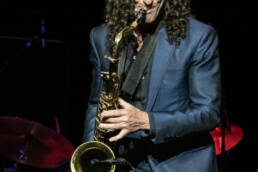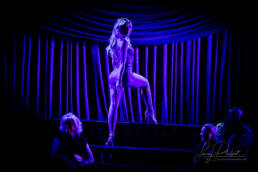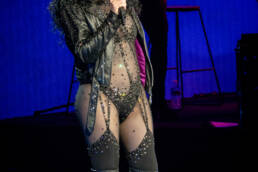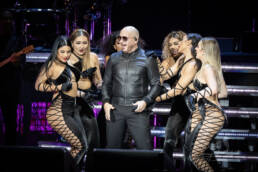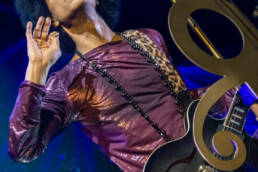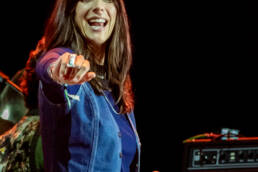Norah Jones: The Velvet Voice That Whispered Its Way to the Top
Imagine a little girl in Texas, tucked between a piano and a stack of jazz records, her fingers tracing melodies before she could even spell them. For Norah Jones, music wasn’t just a dream—it was her inheritance, a thread woven into her DNA by a mother who loved it and a father who lived it. Her journey from a quiet dreamer to a global sensation is a tale of instinct, intimacy, and a voice that turned the world’s head with a single, sultry note.

The Spark That Started It All
Norah’s primary motivator wasn’t the spotlight—it was connection. Born Geethali Norah Jones Shankar on March 30, 1979, in Brooklyn, New York, she was the daughter of Sue Jones, a music promoter, and Ravi Shankar, the legendary Indian sitar master. Music was her first language, a way to bridge the gap between her parents’ worlds and, later, her own scattered life. After her parents split when she was four, Norah moved with her mom to Dallas, where she found solace in piano lessons and choir. She’s said she didn’t crave fame—just the feeling of losing herself in a song. That pull, that need to translate emotion into sound, drove her from church pews to smoky jazz clubs, where she discovered she had something rare to share.
The Full Story: From Dallas Dive Bars to Grammy Glory
Norah’s childhood was a patchwork of influences—gospel from her Baptist church, jazz from her mom’s records, and a faint echo of Indian ragas from her estranged father. At Booker T. Washington High School for the Performing Arts, she honed her chops, winning student awards for her voice and piano skills. College took her to the University of North Texas, a jazz hotbed, but she dropped out in 1999 to chase gigs in New York City. There, waiting tables by day, she played dive bars by night, her understated style catching ears in the downtown scene.
Fate stepped in when she linked up with songwriter Jesse Harris and bassist Lee Alexander (who’d later become her boyfriend). In 2001, they cut demos that landed on Blue Note Records’ desk. The result? Come Away With Me (2002), a debut that blended jazz, pop, and country into a sound so warm it felt like a hug. Released when Norah was just 22, it sold 27 million copies worldwide, propelled by her smoky rendition of “Don’t Know Why.” Overnight, she went from club gigs to headlining theaters, her shy smile a contrast to her seismic success.
She could’ve coasted, but Norah pivoted. Albums like Feels Like Home (2004) and Not Too Late (2007) leaned into rootsy vibes, while collabs with everyone from Willie Nelson to Q-Tip showed her range. Her personal life shifted too—her split from Alexander in 2007 fueled introspective work, and though she keeps her current partner and two kids private, motherhood softened her edges. Today, she’s a genre-defying veteran, her 2020 album Pick Me Up Off the Floor proving she’s still evolving, still enchanting.
Career Highlights: Bands, Bandmates, and Beyond
Norah’s career is mostly a solo affair, but she’s dipped into side projects. She formed The Little Willies, a country covers band, with Lee Alexander, Richard Julian, Dan Rieser, and Jim Campilongo, dropping albums in 2006 and 2012. She also fronted Puss n Boots, a folk trio with Sasha Dobson and Catherine Popper, releasing No Fools, No Fun (2014). No single band defines her, though—her solo work reigns supreme.
Relationships? Her decade with Lee Alexander was low-key but creatively fertile, ending amicably. Her lineage as Ravi Shankar’s daughter grabbed headlines, especially after his 2012 death, when she spoke of their distant but respectful bond. Romances with artists like Ryan Adams (a rumored fling) stirred gossip, but she’s dodged the tabloid trap.
Onscreen, Norah’s shone in My Blueberry Nights (2007), playing a lovelorn waitress alongside Jude Law, and guested on 30 Rock and Sesame Street. Her music’s a TV staple—think Grey’s Anatomy and The West Wing. Awards? She swept the 2003 Grammys with five wins (Album of the Year, Record of the Year, and more for Come Away With Me), adding four more over the years, including Best Pop Vocal Album for Feels Like Home. No Hall of Fame yet, but she’s a lock someday.
Her biggest hits:
- “Don’t Know Why” – Written by Jesse Harris, this 2002 gem, with Norah’s velvet delivery, became her signature.
- “Come Away With Me” – Norah co-wrote this tender 2002 title track with Harris, a love song that seduced the world.
- “Sunrise” – Penned by Norah and Lee Alexander for 2004’s Feels Like Home, its breezy charm won a Grammy.
- “Chasing Pirates” – Norah wrote this quirky 2009 single with Alexander and Harris, a jazzy shift from The Fall.
Controversy in the Spotlight
Norah’s controversies are mild, more murmurs than meltdowns. Her 2003 Grammy sweep sparked backlash—critics called her “safe” and “overhyped,” accusing the industry of pushing a palatable jazz-lite star over edgier acts. She shrugged it off, but it stung. Then there’s her Shankar heritage—some Indian music purists grumbled she ignored her roots, though she’s countered she’s honoring them her way, as on 2012’s Little Broken Hearts. A 2016 spat with a promoter over canceled shows got testy, with Norah firing back online, but it faded fast. She’s too mellow for sustained scandal.
The Quiet Reign Continues
Norah Jones didn’t chase stardom—it found her, drawn to a voice that feels like moonlight on a still lake. From Texas church halls to global stages, she’s built a career on authenticity, dodging trends for something timeless. At 45, she’s still the girl at the piano, whispering truths that echo loud.

